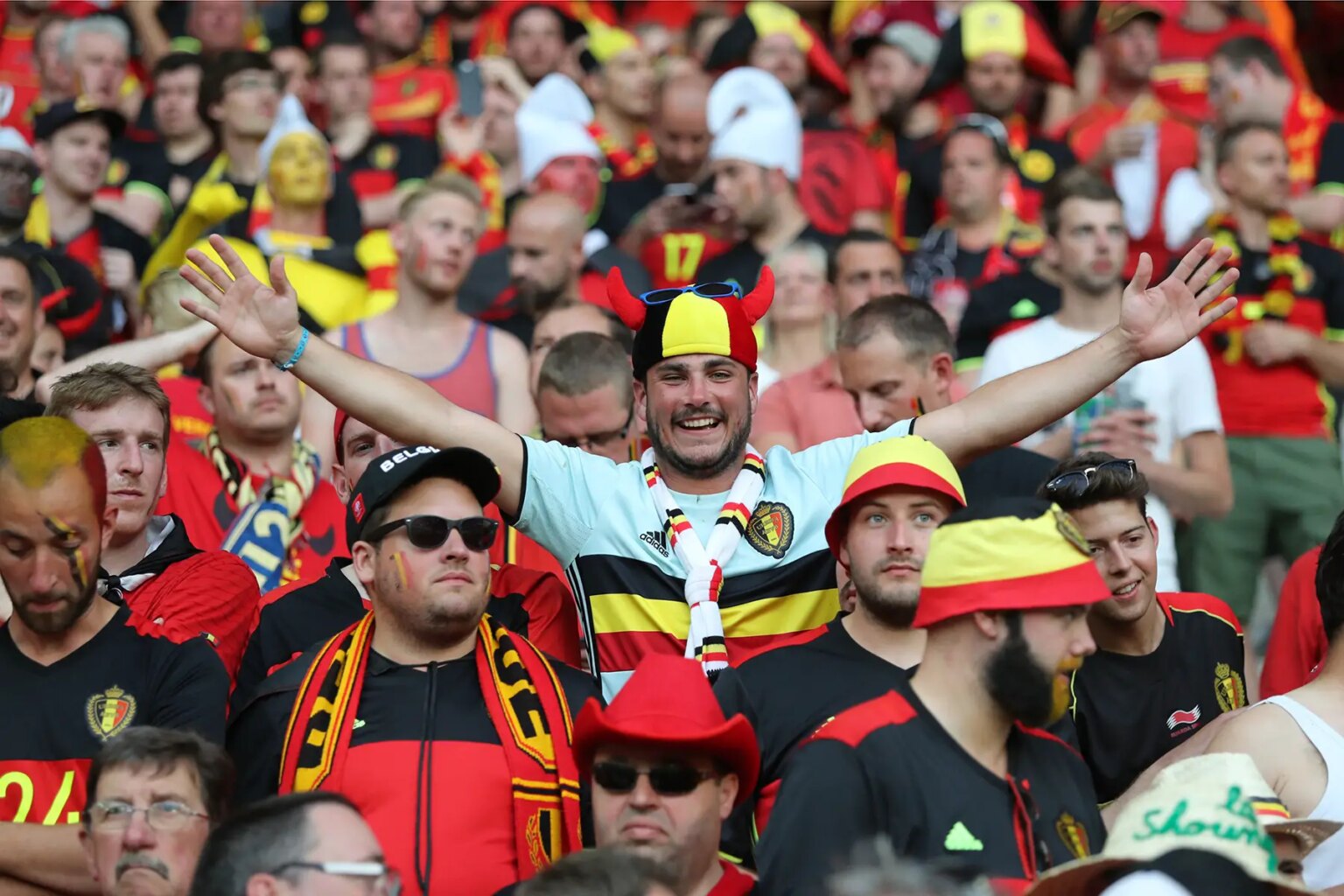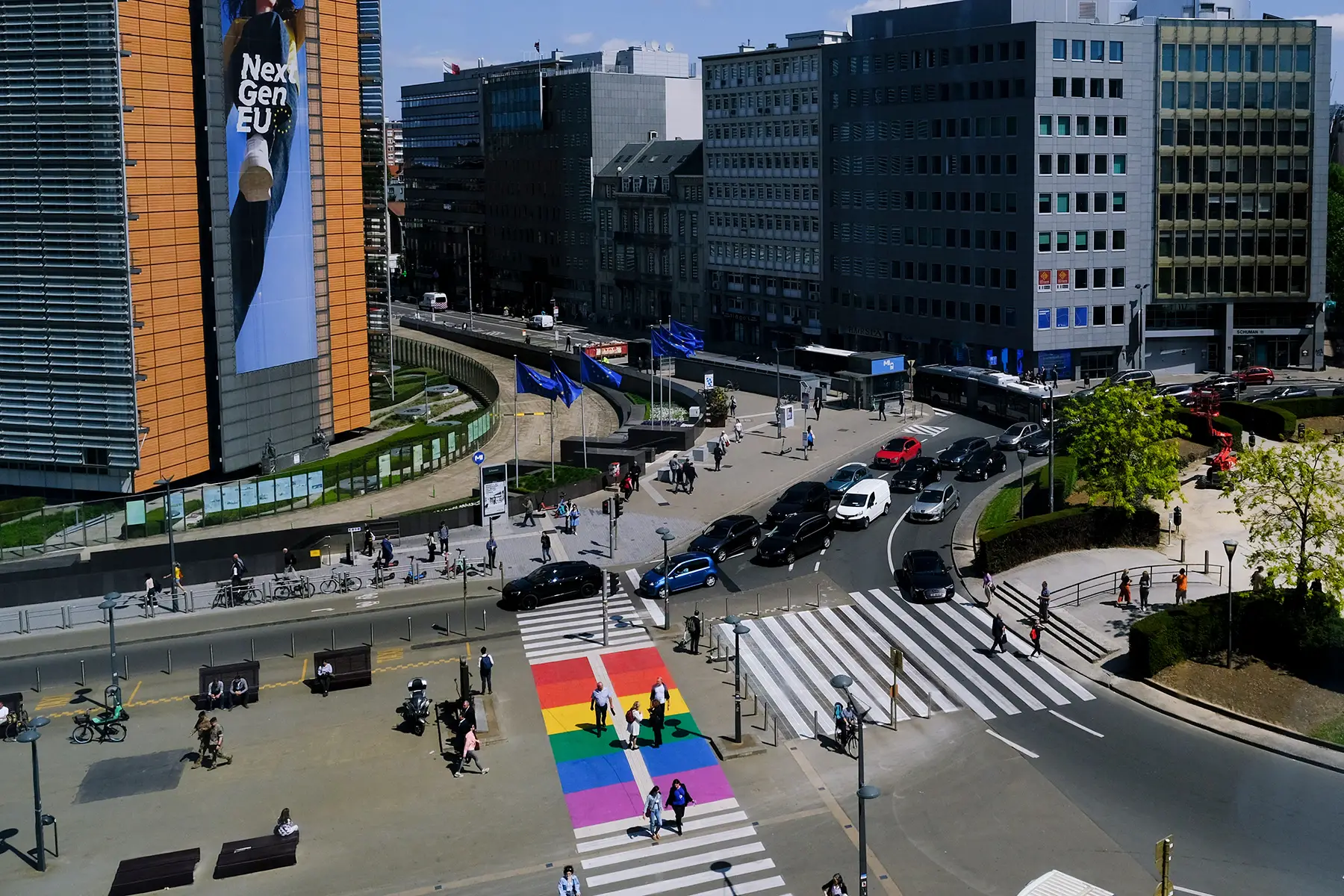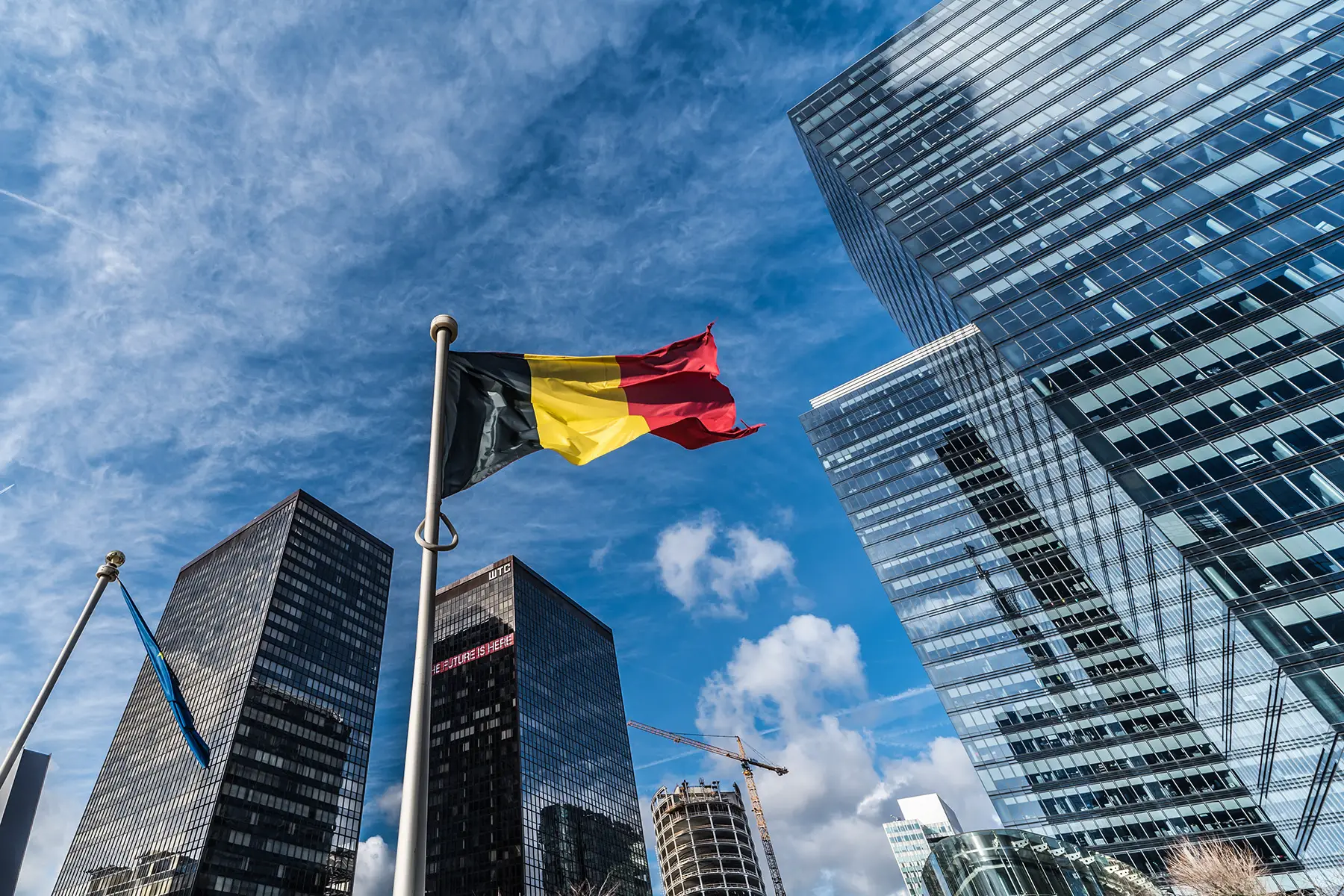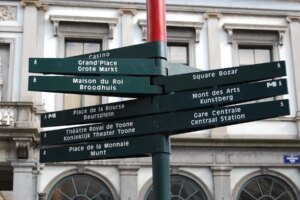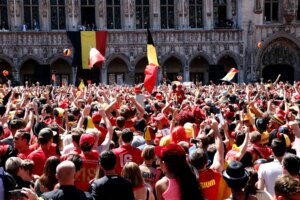Although it may be small, Belgium is a diverse, culturally enriched country. Indeed, from the Dutch-speaking community in Flanders to the French speakers in Wallonia and German speakers in the east, Belgian people exhibit a wonderful blend of cultures and languages. What’s more, their welcoming attitude towards people from other countries makes it even more unique.
While culture and customs may vary among different regions, Belgians tend to share certain common traits. For instance, they believe in maintaining strong family values, a good work ethic, politeness, and an appreciation for culture.
To help you familiarize yourself with Belgian people, this article covers the following:
Sirelo
It's no secret that moving abroad can be stressful. Sirelo's team of removal advisers is here to help. They provide five free quotes from international shipping companies so you can find the best options at the best prices. Take the stress out of your relocation to Belguim with Sirelo.
The Belgian people in numbers and facts
Belgium has a population of approximately 11.7 million people, consisting mainly of Flemish (around 58%) and Walloon (approximately 31%) ethnic groups. However, it is important to note that Belgium also hosts many international residents, and larger cities like Brussels often have a multicultural atmosphere.
What language do Belgians speak?
Belgium has three official languages, which are Dutch, French, and German, and these are spoken in different parts of the country.
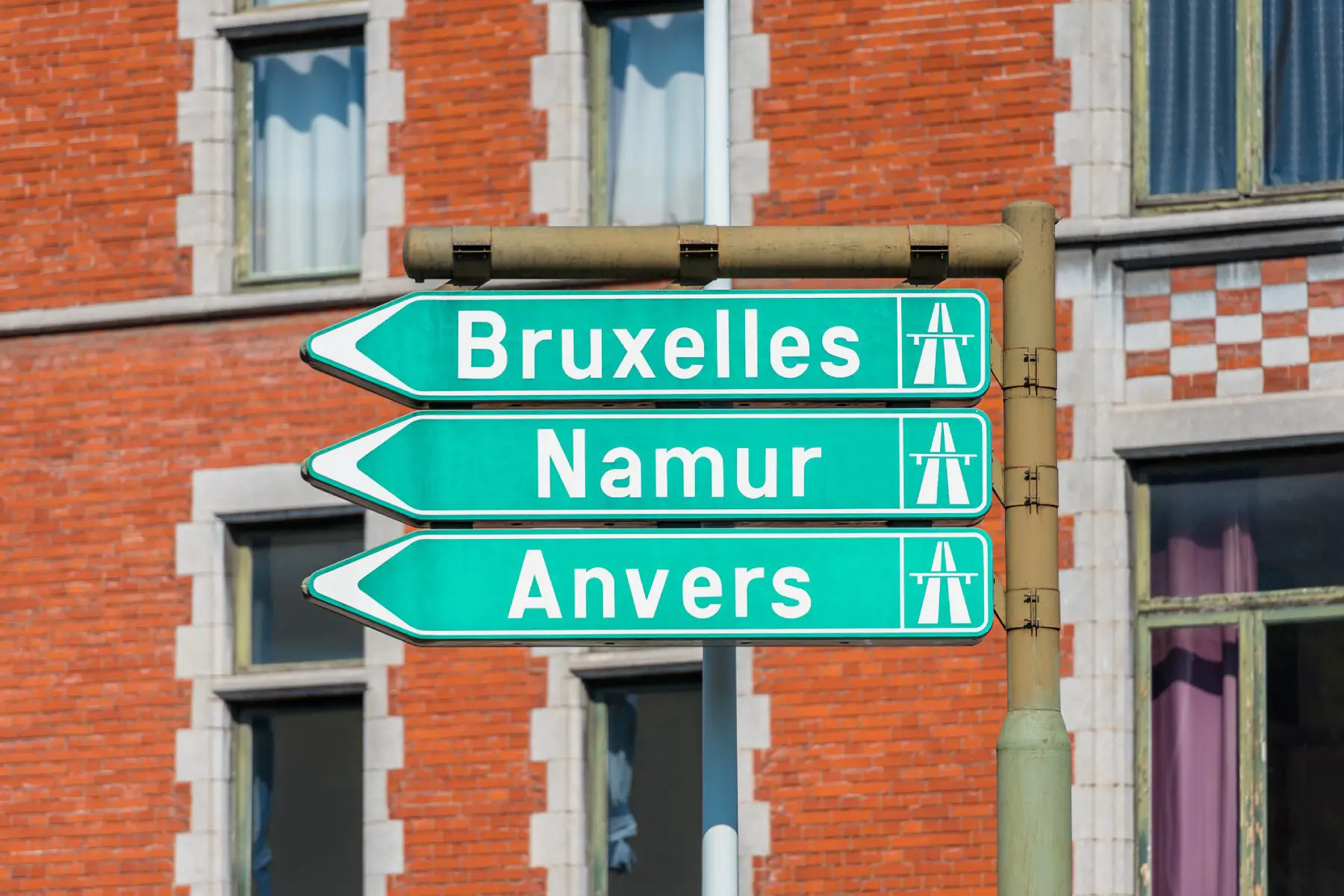
Around 60% of the population speaks Dutch (or Flemish) in the northern region of Flanders. If you are in the southern Wallonia region or in Brussels, however, French is the dominant language. French is actually spoken by around 40% of the Belgian population.
Finally, if you are on the eastern side of Belgium that borders Germany, you will encounter the 1% of the population that speaks German.
What religious beliefs do they have?
When it comes to religion in Belgium, more than half (58%) of the population holds some sort of Christian belief, which is mostly Roman Catholic. Additionally, about 5% of the population is Muslim and 3% follow other beliefs. However, around 27% of the population identifies as agnostic or non-religious.
Although Belgian law forbids religious discrimination, there have been reported incidents involving Jews, including insults, harassment, or physical assaults, mainly in the Antwerp Jewish Quarter, which led to the arrest of one man.
The good news, however, is that the government is working to resolve this and has implemented a legal framework to protect religious groups and grant religious freedom.
Belgian personality traits and stereotypes
Although some people may think Belgians thrive off a diet of chocolate, waffles, fries, and beer, that is not quite true.
While many Belgians take pride in these things, there is more to the country’s food and drink culture. For example, did you know that Belgian people also really enjoy their coffee? In fact, Antwerp is one of the largest ports in the world for coffee storage. And despite Belgian beer being quite famous (for good reason), the nation also enjoys their Jenever and an elderflower aperitif called RoomeR.
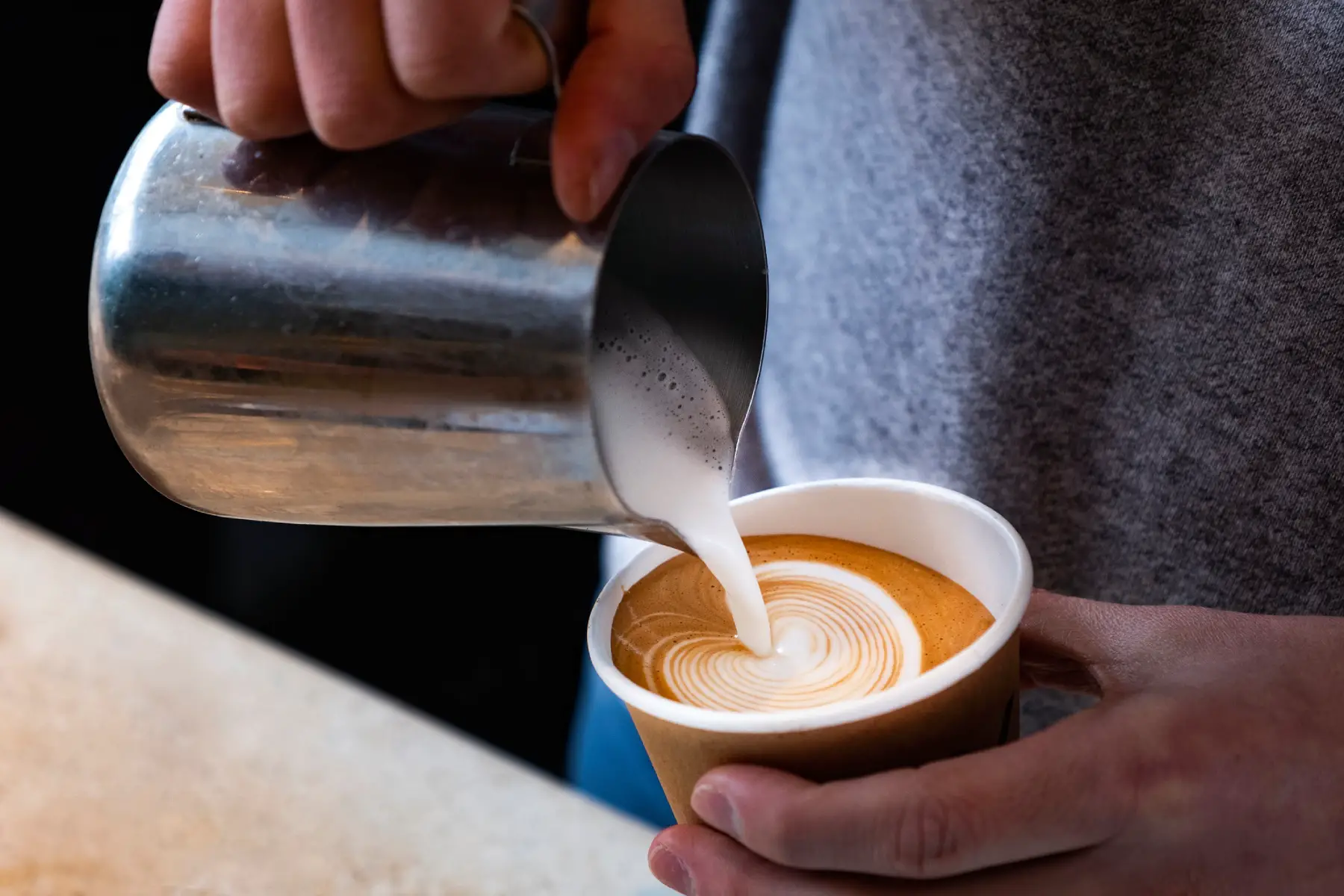
Another common stereotype is that Belgians are reserved and a bit unemotional. On the contrary, once you get to know them, they can be some of the most welcoming and friendly people. In fact, they take pride in being good hosts and love socializing with friends and family. Their friendliness and warmth particularly shine when they are celebrating cultural events and traditions.
One big misconception about Belgian people is that they are quite divided. Some even believe that the Flemish and Walloons do not like each other. However, while this may be true when it comes to politics, the average Belgian gets along quite well with their fellow countrymen or feels neutral towards them.
What culture and values do Belgian people have?
In order to better understand the social norms and gain a deeper appreciation of how Belgians interact and express themselves, let’s explore the culture and values of the nation.
Social etiquette
Generally speaking, Belgians take pride in their courteous and reserved nature. Therefore, it is common courtesy to give a firm handshake when first meeting someone and to say, “Nice to meet you” (Dutch: aangenaam, French: enchanté) after sharing your name.
Since personal space and politeness are also important to Belgians, it is best to mind your manners and avoid asking intrusive questions.
Another thing to keep in mind is that Belgian people value punctuality. Therefore, it is important to arrive on time (or even early) for social events and appointments. However, it is not a good idea to show up unannounced, as they also take planning seriously and often don’t cancel, even if something is scheduled far in advance.
Notably, while these are all general things to keep in mind when it comes to social etiquette in the country, it doesn’t mean that every Belgian follows these rules, and there may also be regional differences to consider.
What do Belgian people wear?
Belgium has quite an interesting fashion scene and is home to many famous designers such as Raf Simons and Dries Van Noten. Of course, the styles seen on the runway tend to be more avant-garde and elegant. However, everyday fashion styles lean more toward classic rather than flashy.
Belgian people tend to wear timeless pieces made of quality material. Fashion styles can also depend on which region of the country you are in, with rural areas being more relaxed, and city-dwellers having a more cosmopolitan style. Belgian youth culture, on the other hand, tends to embrace individualistic styles, mixing vintage with contemporary fashion.

Interestingly, traditional Belgian clothing drew influence from French, Dutch, and German fashion. Many men wore berets and smocks, while long gowns, such as the huntress dress, were popular with women.
However, nowadays, Belgian people only really wear those traditional garments during special occasions such as festivals and weddings. Instead, they tend to dress casually, but stylishly while also being practical. For example, many people wear jeans, trousers, t-shirts, skirts, and sweaters. Moreover, due to Belgium’s constantly changing weather, many people dress in layers.
It is also typical to wear coats and jackets in the colder months as the weather can become quite chilly and rainy. As for footwear, comfortable yet stylish shoes and boots are a popular choice. In terms of business wear, many Belgians opt for suits, dresses, and other formal attire.
How do Belgians feel about religious wear?
Since Belgium is a diverse country, most people don’t take issue with others wearing headscarves or religious symbols. However, controversies have arisen regarding the wearing of headscarves in work and school settings.
In October 2022, Europe’s top court ruled that “prohibiting the visible wearing of religious, philosophical, or spiritual signs does not constitute direct discrimination if it is applied to all workers in a general and undifferentiated way.” Although this ban may include all religious symbols, some believe that it remains discriminatory, and primarily targets certain religious attire.
What do Belgians value?
Belgians take pride in their community and often participate in activities like local festivals and sporting events. Some festivals can be quite the experience too, ranging from a re-enactment of the Battle of Waterloo to a Carnival of the Bears. Smaller-scale community events also foster a sense of unity in this diverse country.
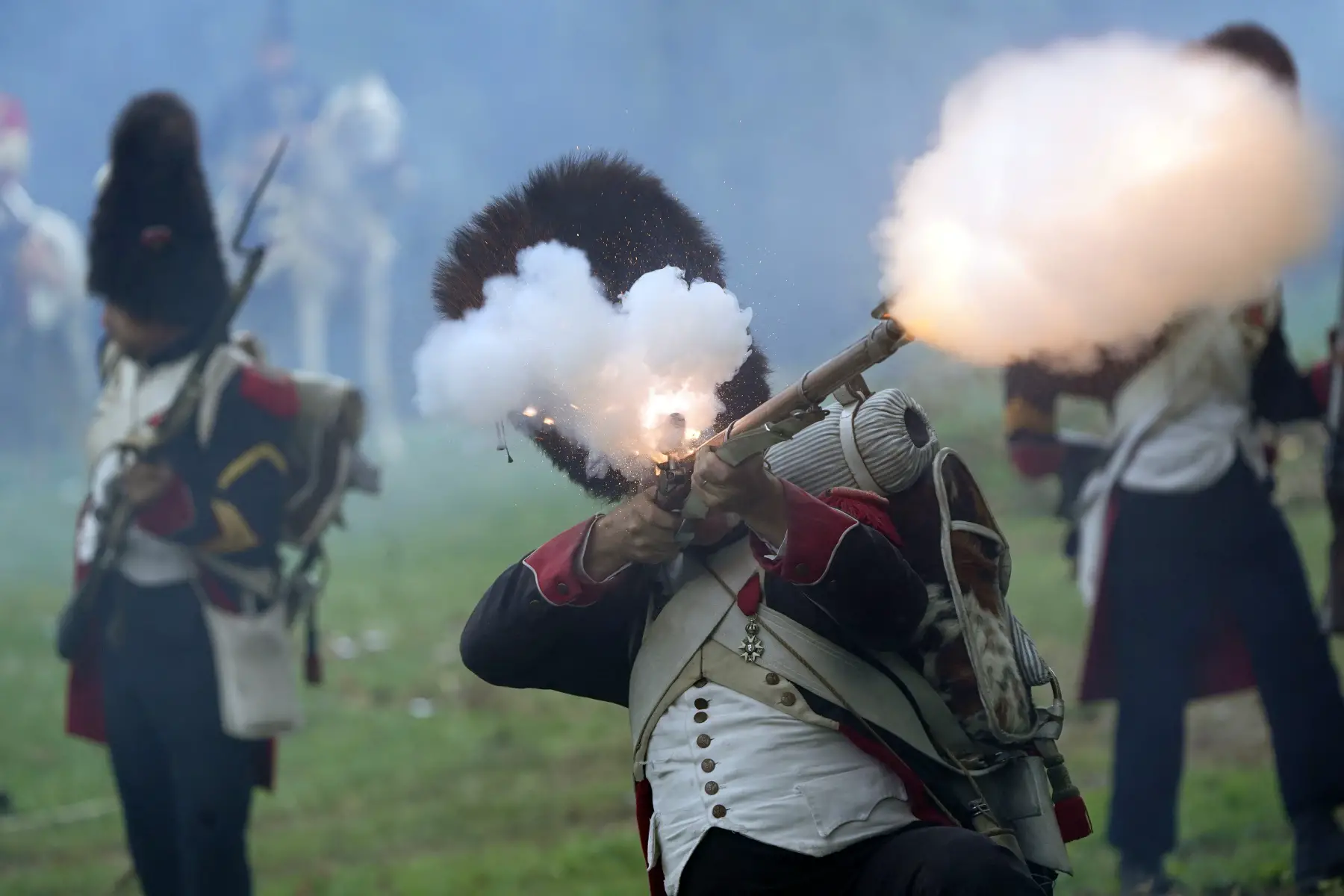
Catholicism still plays a major role in the sense that it influences many traditions and festivals in Belgium. However, there has been a decline in religious practice and attendance in recent years. In fact, according to an article by the Associated Press, “Only 10% of Belgians still attended church regularly.”
Art and culture are highly valued in Belgian society, and there are numerous museums and galleries to explore. Belgian people also enjoy a vibrant music scene and the country hosts several music festivals each year, including the largest electronic music festival in the world, Tomorrowland.
How do they feel about newcomers?
Like many Western European countries, Belgium has a complex relationship with newcomers. In general, people are open to welcoming foreigners and large cities such as Brussels, Antwerp, and Ghent are home to residents from various cultural and religious backgrounds. This makes them particularly appealing to those looking to relocate to Belgium.
However, attitudes toward newcomers may be less welcoming in more rural areas where people have more conservative views and are less accustomed to a diverse community.
Despite Belgium’s anti-racism laws, there have still been incidents of racist attacks throughout the country. In fact, Belgian authorities have registered between 800 and 1,400 cases of racism and xenophobia each year over the past decade. Racism also accounted for around three-quarters of all discrimination cases in 2022.
That said, if you are looking to live and work in Belgium, you will be quite welcome so long as you follow the proper immigration procedures. In fact, Belgium supports a system for legal immigration into the country. There is also hope that more legal immigration will help mitigate the effects of a decreasing working population.
What do people in Belgium like to do?
Belgium offers a wide variety of leisure activities spanning from dining out to enjoying the great outdoors. As mentioned, people love eating and drinking together and often meet friends or colleagues after work to enjoy a quick beer or a meal. On special occasions, they may even indulge in high-end cuisine at one of the country’s many Michelin-starred restaurants.
Another thing Belgian people enjoy is their sports, with football (soccer) being the national pastime. Indeed, watching matches in sports bars or stadiums is a common activity, particularly among young adults. Cycling is another popular sport, and people gather in large crowds to watch races like the Tour of Flanders and Liège-Bastogne-Liège.
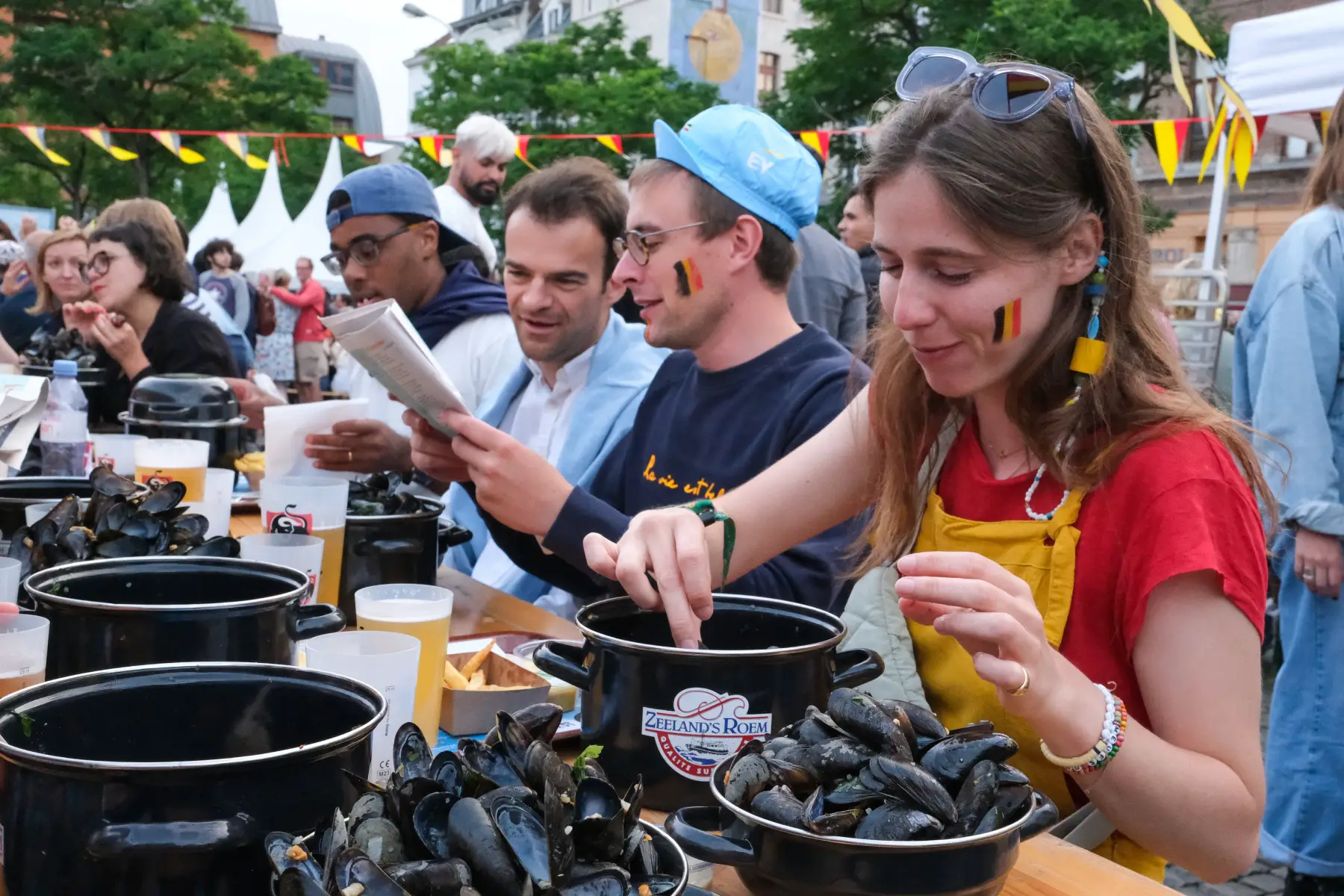
Due to Belgium’s location, which borders the Netherlands, France, Germany, and Luxembourg, people often take short trips by car or train to explore the beautiful countryside or surrounding countries. For example, they may enjoy weekend getaways in nearby Dutch or French cities or travel further afield and have longer holidays in other European countries.
Given that Belgium offers some beautiful natural landscapes, hiking and exploring the great outdoors by bike are also popular activities among Belgian people. Many families also go skiing and snowboarding in the Ardennes during the winter months or flock to the beach and swim in the North Sea in summer.
Where do Belgian people work?
Due to its diverse economy, people work in all kinds of industries in Belgium. Service jobs such as banking, retail, and hospitality are particularly popular in major cities like Brussels since many companies are located there.
Meanwhile, others work in the manufacturing, technology, and innovation sectors. Notably, jobs in healthcare and education are also quite popular. However, the most common job in Belgium among both men and women is office work.
Belgians have a good work-life balance and highly value workers’ rights. As of 2023, 71.4% of people aged 20 to 64 in the country are employed. Typically, maximum work hours in Belgium are 38 hours per week, and cannot go beyond 40 hours. You can read more about this in our article on Belgian employment law.
Where do Belgian people live?
As mentioned, Belgium caters to all kinds of people and offers many captivating regions and cities to call home. Having said that, most high-skilled workers and entrepreneurs tend to flock to its capital city, Brussels.
Meanwhile, the trendy fashion hub of Antwerp generally attracts a young and diverse population, while Ghent and Bruges draw those looking for more picturesque and historical locales. Notably, Ghent is also a popular student town thanks to its university which is one of the largest in the country.
However, choosing where to live in Belgium extends beyond these areas, and when it comes to housing, Belgians inhabit a diverse range of properties.
In bustling cities such as Brussels and Antwerp, for example, residents often choose to rent apartments or townhouses. However, on the suburban outskirts, single-family homes are more prevalent. In picturesque locations such as Bruges and Ghent, on the other hand, canal-side homes and apartments are common. And in tranquil rural areas, you will find Belgians residing in farmhouses or quaint cottages.
Who are some famous Belgians?
- Audrey Hepburn: Born in Belgium, Hepburn was an iconic Hollywood actress. She starred in classic movies including ‘Breakfast at Tiffany’s and ‘Roman Holiday‘.
- Eddy Merckx: A legendary cyclist who is often thought of as one of the greatest in the sport. He won numerous races, including the Tour de France and the Giro d’Italia.
- Jean-Claude Van Damme: Known as the ‘The Muscles from Brussels’, Van Damme is a famous actor and martial artist
- Peter Paul Rubens: A world-famous baroque painter known for works such as ‘The Three Graces‘ and ‘The Descent from the Cross‘
- René Magritte: A renowned surrealist artist who is known for paintings such as ‘The Son of Man‘ and ‘The Treachery of Images‘
Useful resources
- Statbel – Belgium’s official statistical agency which provides data on population, employment, property prices, and more
- belgium.be – the official government website of Belgium which provides information on all aspects of living in the country
